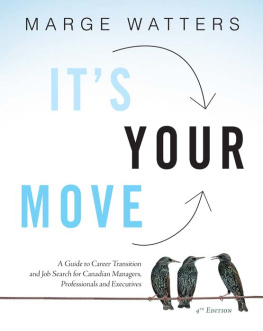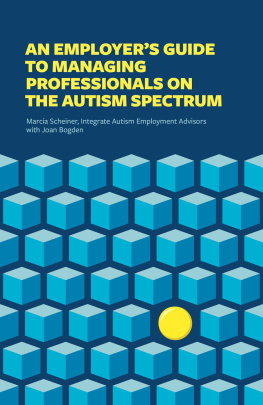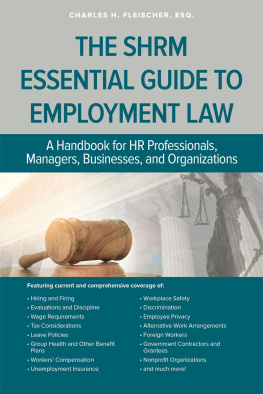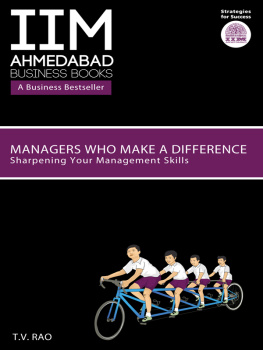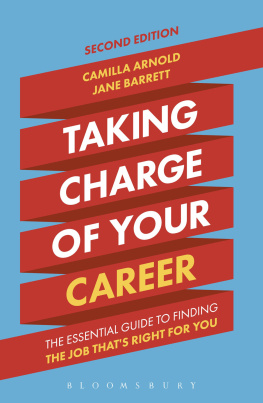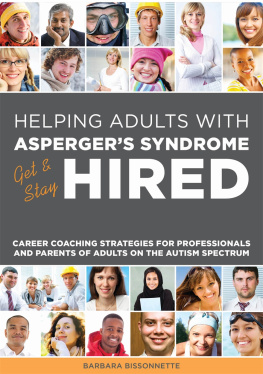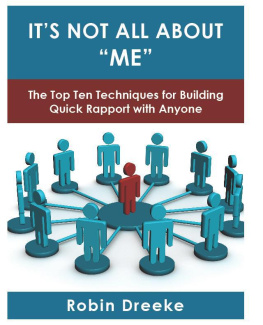FINDING WORK AFTER 40
Proven Strategies for Managers and Professionals
Robin McKay Bell and Liam Mifsud

TABLE OF CONTENTS
SECTION ONE
Get Over It: Age and Redundancy
SECTION TWO
Motivation, Assessment, Strategy and Action
SECTION THREE
Develop Your Network and Upgrade Your Skills
SECTION FOUR
Move Forward: Get a Job
SECTION FIVE
Move Forward: Self-Employment
ADVANCE PRAISE FOR FINDING WORK AFTER 40
This book explodes myths surrounding older workers and by giving a range of practical strategies boosts confidence for those career changers who worry that their date of birth puts them out of the race.
John Lees, author of How To Get A Job Youll Love (McGraw-Hill)
This is a timely book. From the age of 40 onwards, age-related disadvantage is a subtle force undermining employability and confidence for individuals seeking work. A history of low investment in skills and versatility often blights their job prospects. Research shows convincingly that they bring tremendous added value but bizarrely, employers fail to tap the mid-life talent pool when filling vacancies. So mid-life job seekers need to maximise their own marketability, understand their strengths, and correct their weaknesses. They must network like hell and adopt clever job search strategies. Finding Work After 40 takes these elements apart and sets the mid-life job seeker on the right road. Hopefully, if people read this we will hear fewer stories of desperate individuals making a thousand applications and receiving no job offers.
Chris Ball, Chief Executive, TAEN (The Age and Employment Network)
This book makes a serious step in protecting one of societys major assets, the value of its mature work-force. Everyone doing corporate social responsibility (an increasing number daily) should read this book and use it. The authors have achieved the difficult balance between being authoritative, which they undoubtedly are, and being approachable enough for all who read the book to feel that it is written for them. The supporting evidence and illustrations are so constructed as to enhance understanding which is essential in building confidence and deep conviction in ones abilities.
Professor Alan Richardson, Chair of Science in Enterprise, The Royal Institution of Great Britain
Many career books cover the topics of unemployment and re-entry into the workforce. This one is different because its specifically for managers and professionals aged 40 to 65, the forgotten workforce, the one that is assumed to be okay but, in reality, is much in need of advice and assistance when things go wrong. Age discrimination often stands in the way of re-employment, and so older workers must take a different approach when tackling the problem. For many readers, especially those in their 50s or 60s, 40 may seem a bit young to be called older, but our experience is that in some sectors (such as IT) being over 40 is a factor that counts against applicants. Its also the age at which many people will begin to re-examine their career and life goals, with an eye to improving their situation. As well as helping those who have been made redundant find a new job, the book is designed as a practical guide to mid-life career change. Its called FindingWorkAfter 40 because a job (in the traditional sense) may not be the solution to your problem; work in the form of self-employment or a portfolio career are options to consider. So if you have been made redundant or you think its about to happen, if youre contemplating a fresh start, or if you are one of several million older workers who cannot afford retirement, this book is for you.
OUR MOTTO
We describe our concept in seven words: Know yourself, sell yourself, network like crazy. That summarises our approach to work search. If youre able to do those three things well, your chances of getting back into work (or changing career) are vastly improved. We explain each one thoroughly, and provide methods and exercises that help you to improve in areas where you are lacking. Youll learn how to:
carry out a productive skills audit so you can discover and understand the value of your transferable and motivated skills (know yourself);
describe yourself persuasively in professional and social circumstances, in letters and CVs, as well as in interviews (sell yourself);
network effectively to acquire, develop and maintain useful contacts (network like crazy).
HOW THE BOOK WORKS
In Section One we tell you how to deal with the seven elephants in the room the age barriers that stand between you and the work you want. We also explain how our work culture evolved to discriminate against older workers, and we discuss briefly what changes the future may bring. If youve been made redundant, offers advice on how to cope with your situation.
Section Two takes you through an effective assessment of your skills and abilities. A key message in this book is that you must know your strengths to sell yourself effectively. We caution against blindly sending out CVs and completing online applications, because self-knowledge is your competitive advantage. Youll need to look at your options, examine the market, and take a reality check. Then you will be asked to make a decision and create a forward plan from three basic choices: a job; self-employment; or a combination of both in a portfolio career.
In Section Three we show you how to improve your network: the essential skill that must be developed in order to succeed. The section includes a chapter on upgrading your skills. Section Four details methods of finding and getting a job; Section Five explores various types of self-employment and tells you how to get started.
Our Work Funnel diagram illustrates how the book is structured from onwards, directing the flow of your efforts towards a positive outcome. Youll notice that it reappears in some chapters, as a reminder of where you are located in reference to the funnel.
THE WORK FUNNEL
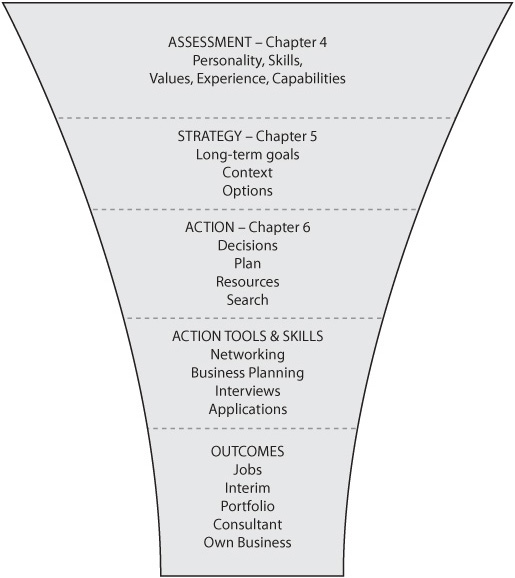
WHY WERE SPECIAL
This is a practical book, based on real-life experience. Weve detailed successful techniques developed by a network of job clubs. As part of the network, the Windsor & Maidenhead Executive Job Club was created in 2005 to assist white-collar workers over the age of 45 in their efforts to re-enter the workforce. Initially supported by the Branshaw Foundation Limited (and now by the Foundation for Jobseekers) the club is run by volunteers; it hosts weekly meetings featuring presentations that cover every aspect of job search and midlife career change. It isnt a passive operation; members are encouraged to develop their self-promotion skills, and to assist each other in networking and seeking work. The Foundation for Jobseekers also supports four other clubs in Berkshire. Since 2005, the five clubs have helped more than a thousand people find re-employment. In this book, the words Job Club refer to the Windsor & Maidenhead Executive Job Club.


